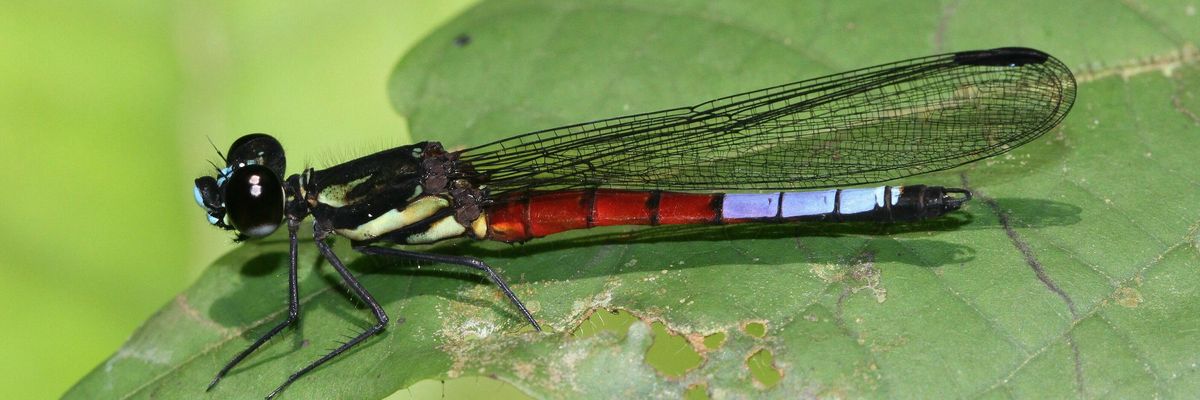The Biden administration was told Thursday it must act urgently to address the biodiversity and climate crises following the release of an updated global assessment that showed the number of species at risk of extinction now tops 40,000.
"The Biden administration has to muster the political will to move away from dirty fossil fuels, change the toxic ways we produce food, curtail the wildlife trade, and halt ongoing loss of habitat."
"Every new look at extinction shows that we're running out of time to save wildlife and ultimately ourselves," said Tierra Curry, a senior scientist at the Center for Biological Diversity.
The update of the IUCN Red List of Threatened Species documents a decline in Earth's dragonflies and damselflies, finding 16% out of over 6,000 species are at risk of extinction amid a deterioration of their freshwater breeding grounds in Asia, the Americas, and Europe. The report says the losses are driven by numerous factors including the climate crisis and land clearance for construction and agricultural crops like palm oil.
Out of the 142,577 species evaluated in 2021 by the IUCN, the analysis found an estimated 28% are threatened with extinction.
As Dr. Ian Burfield, a global science coordinator for BirdLife International, noted in a statement, "The plight of dragonflies is indicative of a wider crisis threatening many wetland species," including major declines in wetland birds over recent years.
Curry similarly called dragonflies "not only gorgeous" but "indicator species that tell us a lot about the health of rivers and wetlands. The serious threats they face are a huge red flag that we have to do better."
"The ongoing damming of rivers and loss of wetlands," she said, "wipes out wildlife and harms humans with increased risks of flooding and diseases."
The plummeting numbers of dragonflies and damselflies is perhaps unsurprising in light of the vast scope of wetland destruction. Despite their crucial role the water cycle and biodiversity, approximately 85% of the world's wetlands have been lost over the past 300 hundred years. That same percentage of loss is true for the U.S. and Canada, though the rate of loss appears to be on the decline.
"The loss of these critical habitats," Dr. Thomas E. Lacher, Jr., Professor Emeritus at Texas A&M University, said of wetlands, "will have severe impacts on amphibians and migratory birds globally," noting their "exceptional levels of biodiversity in an extremely small land area."
Related Content
Nature Defenders Warn Global Biodiversity 'Kunming Declaration' Lacks Urgency
Jessica Corbett
With the new 'Red List' data--and in light of ongoing threats including the climate crisis and toxic pesticides driving an "insect apocalypse"--Curry said President Joe Biden must urgently set the U.S. on a new course in terms of energy production and environmental protection.
"The Biden administration has to muster the political will to move away from dirty fossil fuels, change the toxic ways we produce food, curtail the wildlife trade, and halt ongoing loss of habitat," she said. "We actually can do these things."
"We can and must save life on Earth," Curry added. "In the face of the federal failure to act while the planet melts down around us, individuals, cities, and states have to protect wildlife and fight climate change."


